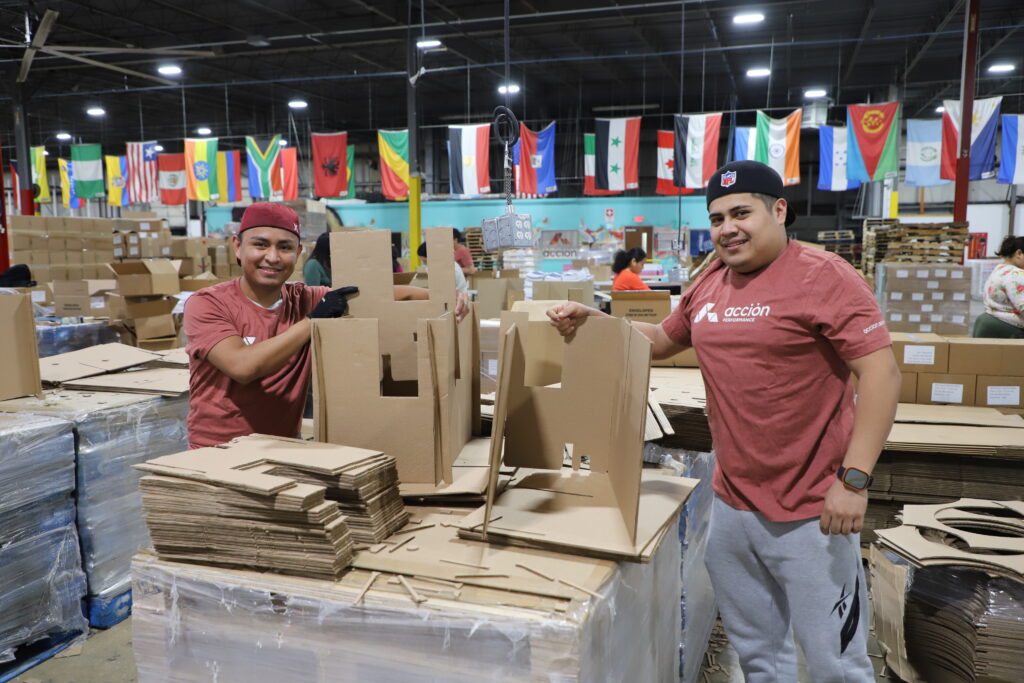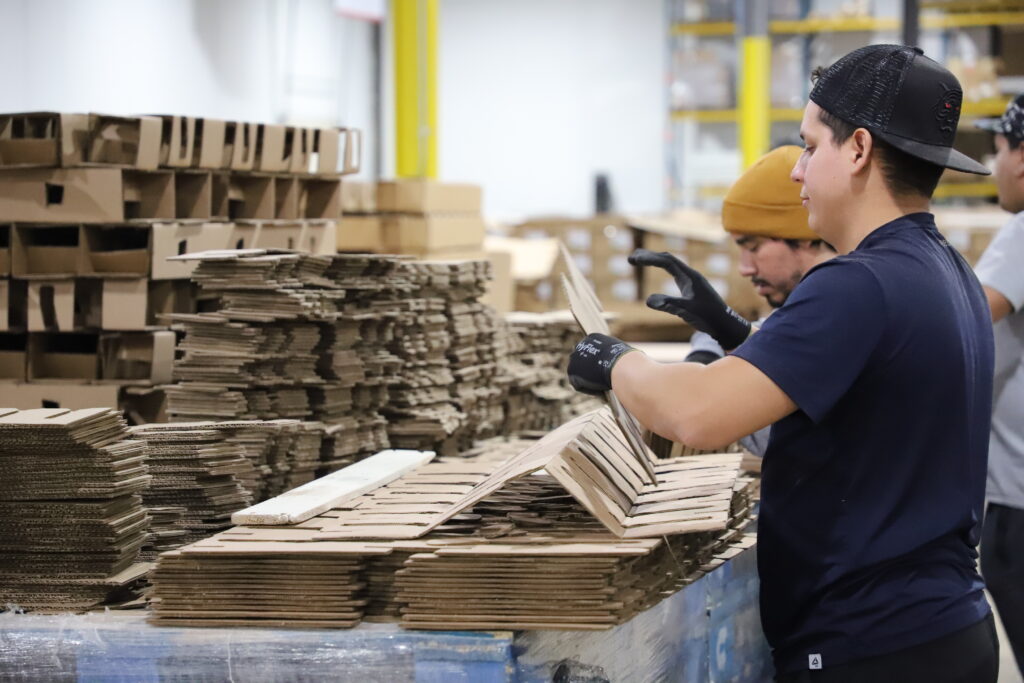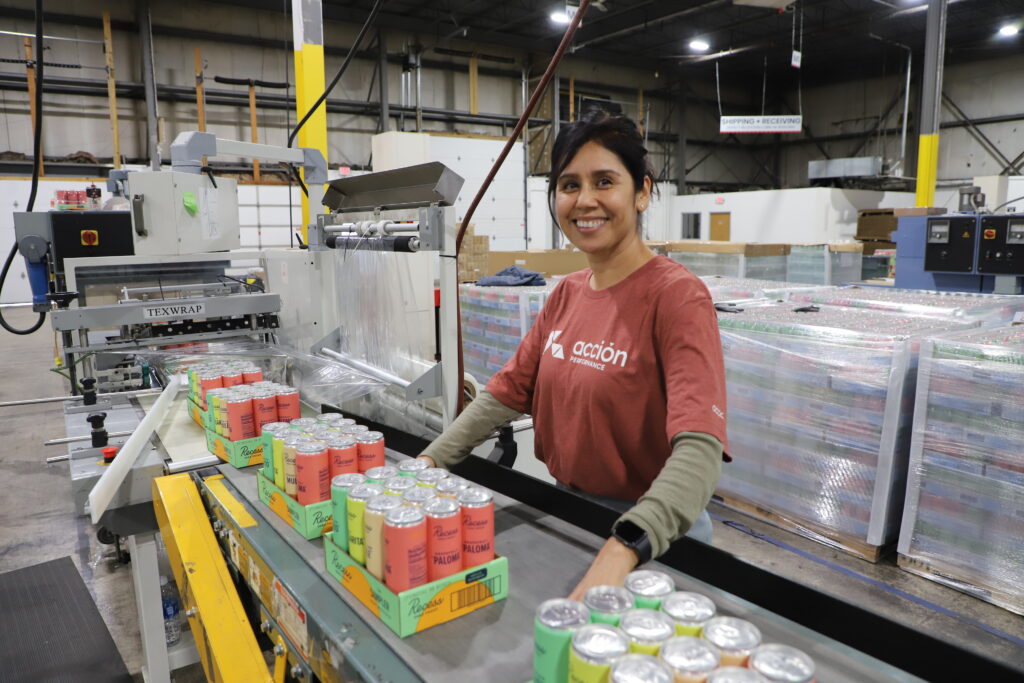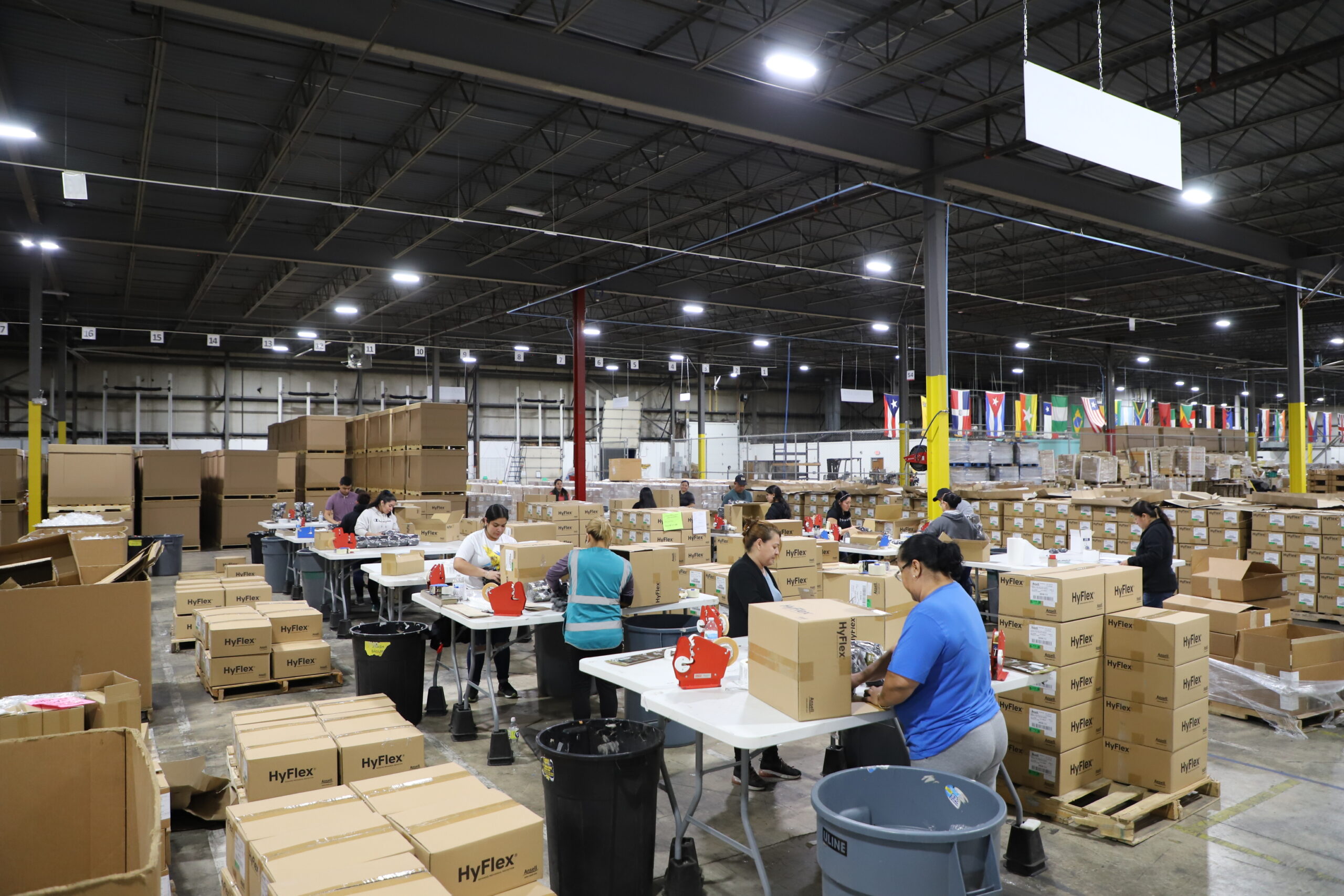Today’s online shoppers expect fast, accurate deliveries every time. Acción’s E-Commerce Fulfillment solutions are built to help growing brands and established retailers keep up with rising demand—without sacrificing quality or control. From order processing to shipping and returns, we manage every detail so your customers receive exactly what they ordered, right on schedule.
Why Choose Acción for E-commerce Fulfillment
Faster Delivery Times
Strategic Midwest locations for two-day ground coverage across most of the U.S.
Real-Time Visibility
System integration with your e-commerce platforms for transparent tracking.
Flexible Scalability
Adjust quickly to promotions, seasonal peaks, or rapid growth.
Lower Overhead
Reduce storage and shipping costs through optimized operations.
What is E-Commerce Fulfillment?
E-Commerce fulfillment is the process of storing, picking, packing, and shipping products sold through online stores or digital marketplaces. It bridges the gap between your sales channels and your customers—ensuring every order moves seamlessly from checkout to doorstep.
At Acción, our fulfillment network integrates with your e-commerce platforms, including Shopify, WooCommerce, and Amazon, giving you real-time visibility into orders, inventory, and performance.
Why Use an E-Commerce Fulfillment Partner?
Managing e-commerce logistics in-house can quickly become overwhelming as volumes rise and customer expectations tighten. Partnering with Acción helps you scale with confidence and consistency.



Who we help
Acción supports emerging e-commerce brands, established online retailers, and omnichannel sellers across industries like consumer goods, health and beauty, electronics, and lifestyle products. Whether you’re scaling into new markets or improving fulfillment performance, we deliver the reliability, speed, and technology to support your growth.
HOW IT WORKS
Custom Solutions
See how the Acción team creates individualized solutions for our clients across industries to optimize their unique demands.



